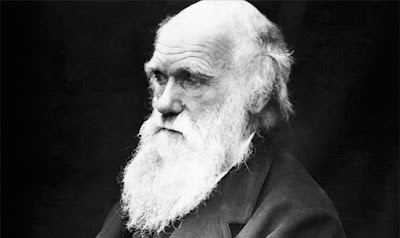Charles Darwin Biography, Childhood, Education, Works, Achievements
Charles Darwin (1809 - 1882) was an English natural scientist who established a framework for the theory of evolution - showing how man evolved from lower life forms. At the time, his research and publication led to a bitter controversy, but his theory of evolution and natural selection was then accepted within the scientific community. |
| Charles Darwin Biography, Childhood, Education, Works, Achievements |
Charles Darwin Childhood
Charles Darwin was born on February 12, 1809 in Shrewsbury, Shropshire. He was born into a rich and influential family. Among his grandfathers, Chinese maker Josiah Wedgwood and Erasmus Darwin, one of England's leading intellectuals of the 18th century.Charles Darwin Education
Darwin planned to study medicine at the University of Edinburgh, but later, at the instigation of his father, changed to study Deity at Christ's College, Cambridge University. Darwin was not a great student, preferring to spend time in outdoor activities; He spent a lot of time examining the natural sciences and the collection of beetles. After taking a passionate interest in the natural sciences, Darwin was offered a spot on the HMS Beagle to act as a natural scientist on a trip to the South American coast.At the time, religion was a powerful force in society, and most people took the Bible as the infallible and literal word of God. This included the belief that God created the world in seven days, and the world was only a few thousand years old. However, during the trip, Darwin increasingly began to see that life was much older. In particular, Lyell's "Principles of Geology" have suggested that fossils were signs of animals that lived hundreds of thousands of years ago.
On the trip, Darwin made hearty notes on the specimens he found on his travels. In particular, in the Galapagos Islands 500 miles west of South America, Darwin was struck by the way the Finch was different on each island. He noticed that the Finch had adapted to the different aspects of the particular island.
Charles Darwin Works
Over the next 20 years, Darwin has worked on the dilemma of how species evolve and can end up being very different on different islands. Influenced by the work of Malthus, Darwin proposed a theory of natural selection and a gradual evolution over time."In the struggle for survival, the strongest win at the expense of their rivals because they are able to adapt to their environment best."
- Charles Darwin
Charles Darwin Achievements
Darwin continued to refine his theory, and would have greatly pushed plants to work on his theories. However, realizing the controversy of his ideas, Darwin delayed publishing them. It was only after learning that another naturalist, Alfred Russel Wallace had developed similar ideas, that Darwin was galvanized by publishing his own book.In 1859, the publication "On the origin of species by means of natural selection" was published. It immediately aroused widespread interest and attention, which led to intense debate about the assertion that human involvement stems from animals such as the monkey.
"Because of this struggle for life, every variation, however slight and whatever the cause, whether it is in some measure beneficial to an individual of every kind, in its infinitely complex relationship to other organic beings and to the external nature, Preserve this individual, and will be inherited by his offspring. "
- Charles Darwin, origin of the species (1859)
However, by the time he died on April 19, 1882, his ideas were increasingly accepted - at least by scientific and non-religious society. He received a state funeral at Westminster Abbey.
Religious Beliefs of Charles Darwin
Darwin was raised in the Church of England, and at one time he was trained to be an Anglican priest. Like many of his generation, he took the Bible as the literal word of God and often cited it as a source of moral authority. However, after his epic journey to South America, he became doubtful of the Bible as a source of history; He felt no reason why all religions could not be true.
From 1849, he stopped going to church, but he never considered himself an atheist. He believed that "agnostic" more closely reflected his beliefs. He wrote in his autobiography that he eventually abandoned Christianity when he disagreed with the conclusion that all non-believers spend eternity in hell.
"I can not really see how anyone should wish Christianity to be true, for if it is, the clear language of the text seems to show that men who do not believe, and this would include my father, my brother And almost all my best friends, will be punished every day. "
He was politically liberal, being an opponent of slavery. He experienced the brutality of the way people treated their slaves in a Spanish colony.
"I noticed how much the general feeling, as shown in the elections, was rising against slavery. What a pride for England if it is the first European nation to completely abolish it!"









0 comments:
Post a Comment